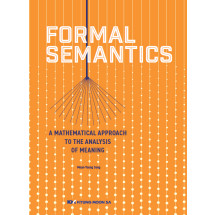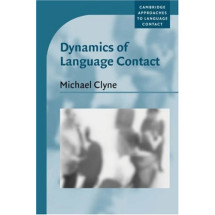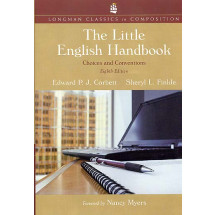This all-in-one rhetoric, reader, research paper guide, and brief handbook provides a flexible, comprehensive resource that fully integrates critical thinking into sections on the writing process and patterns of organization. This rhetorically organized text helps students learn to use reflective and critical thinking in all stages of writing and reading. Four In One is designed for maximum flexibility—each part is self-contained and can be used independently, but students and instructors can rely on this single volume for all their composition needs. A separate section of thirty readings allows instructors to pick and choose, so they are not locked into a single approach. The extensive research guide comprises well over 100 pages of strategies for finding, using, and sources, and a brief handbook offers students the critical information they need to write correctly. Individuals who want a complete writing resource.
I. Effective Thinking.
*1. Creative and Critical Thinking.
*2. Critical Thinking Basics.
*3. Critical Thinking and Reasoning.
II. Writing College Essays.
4. Preparing to Write an Essay.
5. The Composing Process: Prewriting and Informal Planning.
6. Writing a Thesis Statement and a Formal Plan.
7. Writing Paragraphs for a Rough Draft.
8. Responses to a Rough Draft: Instructor and Peer Comments.
9. Revising a Rough Draft: Structure, Paragraphs, and Sentences.
10. Preparing to Submit an Essay.
III. Development Patterns.
11. Description: Rendering Experience.
12. Narration: Connecting Events.
13. Examples: Illustrating Experience.
14. Comparison: Showing Similarities and Differences.
15. Cause and Effect: Exploring Reasons and Results.
16. Process Analysis: Explaining Step by Step.
17. Classification and Division: Analyzing and Arranging Experience.
18. Definition: Creating Impressions.
19. Argument: Convincing Others.
IV. The Research Essay.
20. Finding and Researching a Topic.
21. Researching on the Internet.
22. Writing the Research Essay.
23. Documenting Sources in a Research Essay.
MLA Style Documentation.
APA Style Documentation.
V. Writing for Other Purposes.
24. Writing about Literature.
*25. Writing about Images.
26. Writing for an Essay Exam.
27. Writing for Business: Letters, Resumes, Memos, FAXes, and E-Mail.
VI. READINGS FOR WRITERS.
28. Critical Reading.
Contemporary Essays for Study.
*David Brooks, Love, Internet Style.
K.C. Cole, Entropy.
*Rene Denfield, The Lady of the Ring.
*Teresa L. Ebert and Masud Zavarzaden, Our American Diet Divides.
Gretel Ehrlich, About Men.
Neal Gabler, How Urban Myths Reveal Society's Fears.
George Gilder, Why Men Marry.
Ellen Goodman, Becoming Desensitized to Hate Words.
*Gina Greenlee, No Tears for Frankie.
*Ros Del Castillo Guilbault, Americanization Is Tough on Macho.
Pete Hamill, Crack and the Box.
*John Kifner, Good as a Gun: When Cameras Define War.
Stephen King, Why We Crave Horror Movies.
Jeff Z. Klein, Watching My Back.
*Marcus Laffey, Cop Diary.
Michael Levin, The Case for Torture.
William Lutz, Doublespeak.
*Mary McNamara, A Gentle Man and His Love of Guns.
William Ian Miller, Gifts of Honor: An Exchange.
*Charles Murray, Well, It Seemed Like a Good Idea.
Francine Prose, Gossip.
Tom Regan, Animal Rights, Human Rights.
Stephen Rose, Proud To Be a Speciesist.
George Simpson, The War Room at Bellevue.
Brent Staples, Black Men and Public Places.
Amy Tan, Mother Tongue.
*Garry Trudeau, Anatomy of a Joke.
Marie Winn, TV Addiction.
29. Enduring Essays for Study.
George Orwell, A Hanging.
Jonathan Swift, A Modest Proposal.
Lewis Thomas, On Natural Death.
Mark Twain, The Damned Human Race.
E.B. White, Once More to the Lake.
VII. WRITER'S HANDBOOK.
Sentence Errors.
Sentence Fragments.
Run-On Sentences.
Subject/Verb Agreement.
Verb Tense.
Pronoun Case.
Pronoun/ Antecedent Agreement.
Pronoun Reference.
Gender-Neutral Language.
Reminders for ESL Writers.
Punctuation.
Commas.
Semicolons.
Colons.
Dashes.
Apostrophes.
Quotation Marks.
Ellipses.
Parentheses.
Brackets.
Slashes.
End Punctuation Marks.
Mechanics.
Capitalization.
Underlining.
Numbers.
Abbreviations.
Hyphens.
Spelling.
Author Biographies.
Indexes.
Rhetorical Index.
Thematic Index.
General Index.












